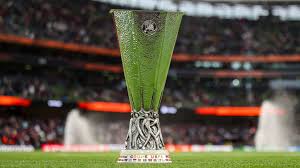Discover how AS Monaco continues to produce world-class football talent through smart scouting, elite training, and a youth-first philosophy.
How Monaco Develops Talent Year After Year
In the glamorous landscape of European Playtech, AS Monaco has consistently defied expectations—not just on the pitch but in their ability to nurture world-class talent. Despite financial constraints and constant squad turnover, Monaco remains a factory of elite players. From Kylian Mbappé to Aurélien Tchouaméni, the list of stars that have emerged from the club is nothing short of remarkable.
But how does Monaco do it, year after year? What lies behind their reputation as one of Europe’s finest football incubators? This deep dive explores the key pillars of Monaco’s talent development model and how they’ve turned this modest French club into a global launchpad for superstars.
1. The DNA of AS Monaco: A Development-Driven Club
AS Monaco may not have the commercial might of PSG or the legacy of Marseille, but what sets them apart is a clear identity centered around youth.
-
Scouting over spending
-
Growth over short-term success
-
Selling high and reinvesting smartly
Monaco’s model is a sustainable blueprint that values talent development as a competitive advantage.
2. The Legendary Academy: La Diagonale
Opened in 2013, La Diagonale is Monaco’s €55 million state-of-the-art academy, symbolizing the club’s commitment to nurturing young players.
Key Features:
-
Dormitories for over 60 players
-
Dedicated medical and fitness facilities
-
Integrated classrooms and education support
-
Direct access to professional coaching staff
This elite setup has helped mold Kylian Mbappé, Youssouf Fofana, Benoît Badiashile, and Anthony Martial, among others.
3. Smart Scouting Network Across Continents
Monaco’s scouting department rivals that of top European giants. Their recruitment focuses on undervalued regions, youth international tournaments, and early analytics-driven performance data.
Talent Hotspots:
-
France & Francophone Africa
-
Portugal & Brazil
-
Eastern Europe
Rather than sign finished stars, Monaco looks for raw, moldable players with potential for explosive growth, often aged 16–21.
Recent Successes:
-
Aurélien Tchouaméni – Signed from Bordeaux and sold to Real Madrid for €100M.
-
Axel Disasi – Signed from Reims, now at Chelsea.
-
Caio Henrique – Developed into one of Ligue 1’s top fullbacks.
4. A Culture of Early Opportunity
Monaco is a rare elite club where young players are trusted with real responsibility. Many European teams hoard young talent but hesitate to give them minutes. Not Monaco.
Under multiple coaches, Monaco has:
-
Fielded one of Ligue 1’s youngest starting XIs.
-
Promoted teenagers directly to first-team roles.
-
Used domestic and European competitions as development labs.
Kylian Mbappé was just 17 when he exploded into Ligue 1. The trust given to youth is a hallmark of Monaco’s system.
5. Tactical Style That Aids Growth
Monaco plays an expansive, high-tempo, possession-oriented game, which is ideal for player development.
Benefits:
-
Young attackers learn to operate in tight spaces.
-
Defenders are trained to play high lines and recover quickly.
-
Midfielders are drilled in transitions, ball progression, and positional awareness.
Whether under Leonardo Jardim, Niko Kovač, Philippe Clement, or Adi Hütter, the emphasis on progressive football remains constant.
6. Analytics and Modern Football Technology
Monaco was one of the earliest adopters of performance analytics in France. Their partnership with tech companies and analytics firms helps:
-
Track physical output and injury risk
-
Quantify development curves
-
Assess training effectiveness
Data-driven insights aren’t just for buying and selling players; they guide individual development in a personalized way.
7. A Pathway to Europe’s Elite
Young players are drawn to Monaco because they know it’s a launchpad to the biggest stages. The club has a history of:
-
Selling at the right time for maximum profit
-
Ensuring players are ready before leaving
-
Building strong relationships with top European clubs
Top Departures in the Last Decade:
-
Kylian Mbappé → PSG (€180M)
-
Bernardo Silva → Manchester City
-
Thomas Lemar → Atlético Madrid
-
Tiemoué Bakayoko → Chelsea
-
Fabinho → Liverpool
Monaco’s smart sales fund reinvestment into their youth pipeline, creating a sustainable cycle.
8. Coaching Philosophy in Line with Development Goals
Monaco doesn’t hire managers for short-term trophies. They choose coaches who:
-
Prioritize youth development
-
Play attractive football
-
Accept the inevitability of selling top players
This long-term mindset keeps the club grounded even when stars depart. The system stays intact, and new players are seamlessly integrated.
9. Domestic and European Exposure
Competing in Ligue 1 and the UEFA competitions (Europa League or Champions League) offers young Monaco players high-level experience:
-
European exposure increases market value
-
More matches mean more development time
-
Better opponents test resilience and tactics
This dual exposure accelerates player growth and builds a resume that top clubs can’t ignore.
10. Why Monaco’s Model Is Hard to Replicate
Many clubs try to follow Monaco’s path but fail due to one missing ingredient: patience.
Monaco:
-
Accepts bad seasons during rebuilding
-
Doesn’t panic-sack managers for missing top-four
-
Understands that long-term planning beats short-term hype
They combine elite facilities, visionary leadership, a deep scouting network, and an iron-clad identity. That’s not easy to replicate overnight.
🗣 Support Talent, Support Football!
AS Monaco shows that developing talent can be as powerful as buying it. Their model is a celebration of smart football—one that builds stars from scratch rather than chasing them with blank checks.
Let’s cheer for clubs that invest in youth, nurture potential, and shape the future of football. Support development. Support sustainability. Support football!
